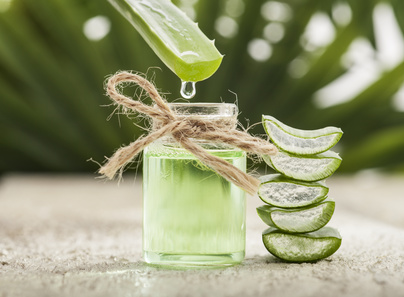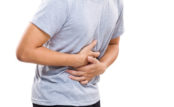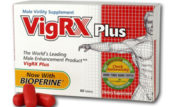 Like it or not, there’s bacteria in you. Over 500 unique strains of it actually, and they’re so plentiful, they outnumber the cells in your body.
Like it or not, there’s bacteria in you. Over 500 unique strains of it actually, and they’re so plentiful, they outnumber the cells in your body.
As it turns out, they’re feisty little suckers. There’s a ongoing struggle in your digestive system for balance, between the good guys and bad guys. In many people, the good guys prevail. Yet in others, the nasty bacteria take over and cause a range of issues, from digestion problems to GI inflammation. And in some cases, increased risk of several forms of cancer.
If the digestion problems part of the latter symptoms sound familiar, there’s good reason for that. Many factors, from stress and diet to food allergies and antibiotics, can disrupt the delicate balance between the good and the bad, with digestion problems shortly to follow.
Probiotics are the beneficial bacteria that put balance back in your gut and reduce digestion problems like diarrhea and bloating. They’re an emerging field, with substantial evidence to show they can reduce a variety of health issues, including stress and diseases of the bowel. Research continues, and it looks promising.
Bear in mind that this is a new field. While the role of bacteria in the human physiology hasn’t changed in millions of years, it’s only now we’re beginning to understand the role of probiotics and what they can do.
And with that in consideration, let’s learn more about probiotics – at least, what we know so far – and how to identify the products that may be of the most interest to you.
Why You Should Supplement
The World Health Organization defines probiotics as “live microorganisms which when administered in adequate amounts confer a health benefit on the host”. Accordingly, probiotic supplements may be of interest to you for the following reasons:
You May Be Lacking Probiotics – Half of what you excrete is bacteria. Combine that with increased consumption of processed “nutrition” and less fermented foods in the average diet and it’s a recipe for digestion problems like gas, diarrhea, constipation and more.
Probiotics May Have Additional Benefits – We already know that probiotics can reduce digestion problems. But it’s the additional benefits, like their ability to reduce stress, urinary tract infections and even treat obesity that may really peak your interest. Research continues.
They Reduce Dangerous Bacteria – Not to be paranoid, but harmful bacteria are on the rise. Deaths from the clostridium difficile strain have tripled in the past decade.
Don’t let the last point put the fear of God into you. We’re talking relative numbers here. C. difficile claims 14,000 American lives each year, of which 90% are over 65.
It may be enough, however, to illustrate the power of bacteria, both good and bad, and the role it plays in your health and quality of life.
Good and Bad Bacteria
Draw the battle lines. There are good bacteria and there are the ones you’d do well to avoid.
We should emphasize that research is ongoing with probiotics, their properties and what health concerns they might treat. While there are certainly more beneficial bacteria than we’re aware at present, some of the more common probiotics you’ll encounter include:
Bifidobacterium – Found in the GI tract, vagina and mouth of humans and mammals, bifidobacterium assist with a variety of functions, from vitamin production to killing pathogens and conversion of food to bioactive molecules.
Lactobacilli – Of interest to researchers for their potential anti-cancer properties, lactobacilli may inhibit growth of tumors within the colon, liver, bladder and mammary glands.
Yeasts – The Saccharomyces boulardii is proven to reduce cases of diarrhea from HIV, C. difficile and when travelling and is often used to reduce symptoms of irritable bowel syndrome.
While these common strains of good bacteria might not roll off your tongue with familiarity, a list of some of the worst strains of bad bacteria reads like a roll call of the FBI’s ten most wanted. They include:
Clostridium difficile – Notorious for cases of persistent and even lethal diarrhea, C. diff attacks the lining of the intestines and tends to proliferate in patients using antibiotics and penicillin, both of which kill the bacteria that would otherwise keep C. diff under control.
C. difficile claims 14,000 American lives each year, of which 90% are over 65.
Salmonella – A nasty little bacterium that pops up in unhygienic food preparation, salmonella goes to work in the intestine and is a leading cause of food poisoning, with almost 150,000 cases each year in the United States.
E. Coli – Escherichia coli, better known as E. Coli, actually consists of many strains of a bacteria that lives in the digestive tract. Though most strains are harmless, the ones that get press are renowned for bloody diarrhea, urinary tract infections, and in some cases, kidney failure.
You may also be familiar with norovirus, often called “the cruise ship virus”, linked to about 800 deaths each year and part of a larger trend of rising deaths from gastroenteritis, though norovirus is technically not a bacterium.
 These guys are the lowest of the low, mind you. There are hundreds of strains of bacteria, billions of which make their home in you. Few of them are quite so dangerous.
These guys are the lowest of the low, mind you. There are hundreds of strains of bacteria, billions of which make their home in you. Few of them are quite so dangerous.
But it’s food for thought. The impact of today’s lifestyle, with its often time-pressed schedules makes processed and all-around unhealthy foods a common fixture in homes across the nation. They all affect the delicate balance of good and bad bacteria in your digestive system. Germs will spread anytime you pack many people in confined places.
Benefits of Probiotics
Fortunately, probiotics can help. They’re already proven to treat symptoms of bad digestion, including IBS and diarrhea. And the studies continue. There’s hope that probiotics may treat skin conditions, urinary tract infections and reduce risk of colon cancer.
We’ll get to that. For now, though, the jury’s in on probiotics and their ability to treat the following health concerns:
Diarrhea – Bad news first. One in three patients taking antibiotics develop diarrhea (which can be lethal in children and the elderly). Now the good. A new study published in the Journal of the American Medical Association documents that probiotics lowered that risk by 42%.
Reduced Inflammation of the GI Tract – According to the American Journal of Clinical Nutrition, probiotics may reduce inflammatory bowel disease – linked to a variety of digestive ailments and, if left untreated, higher risk of colorectal cancer.
Stress – This one may surprise you. Researchers in a study at UCLA found that women who consumed probiotics from yogurt showed a muted response when shown images to evoke fear compared to women who didn’t supplement. The rationale behind these findings? When you change what goes on in the gut you may change how the brain responds to it.
As well, there is some evidence that probiotics may treat acne, eczema, allergies, dental disease, colon and bladder cancer and stomach ulcers caused by H. Pylori.
Powerful stuff. Curious which foods pack the most probiotic bang for your proverbial dollar? Read on.
Foods With Probiotics
Many foods claim they offer probiotic benefits. Much of that is marketing – in a nation with obesity at 42% and climbing each year, digestion problems are rampant. Food companies know this, and the probiotic bandwagon presently features orange juice, pizza and even chewing gum.
With that said, do a probiotics test run. Look for foods in which probiotics occur naturally rather than having them added. That’s the foods listed here, which you may find reduce digestion problems and keep things peaceful in the state of your stomach.
Yogurt – The most famous source of probiotics, yogurt is high in both bifidobacterium and lactobacilli and is ideal for the lactose intolerant. Avoid yogurts that promote fruit at the bottom, which are unusually high in sugar. Add real fruit instead and look for a product with “live and active cultures” on the label.
Avoid yogurts that promote fruit at the bottom, which are unusually high in sugar. Add real fruit instead and look for a product with “live and active cultures” on the label.
Sauerkraut – An acquired taste for some, this staple of German cuisine bursts with probiotics leuconostoc, pediococcus, and lactobacillus. Opt for unpasteurized sauerkraut, as the pasteurization process kills the beneficial microbes. Most products at the supermarket will be pasteurized. Don’t like sauerkraut? You get the same benefits with Kimchi.
Miso Soup – Your tour of international cuisine continues with miso soup. With an estimated 160 million+ strains of helpful bacteria, the fermented soybean paste is a popular breakfast item on Japanese tables. As well, it’s an excellent source of B vitamin and antioxidants.
Soft Cheese – Not all strains of probiotics survive the often harsh environment of the digestion system, but those found in soft cheese, and Gouda in particular, are of the tougher sort and tend to make the journey intact. Soft cheese may also boost the immune system.
Kefir – Wanna stir things up a bit? Try kefir, a probiotic-filled beverage originally used by shepherds in Eurasia’s Caucasus mountains. Thick and creamy like yogurt, kefir is an exceptional source of both beneficial microbes and some of the yeasts as well.
Probiotic Milk – Notice how many dairy products are on this list? You can get more of the happy little suckers in your tummy with acidophilus milk. It’s sometimes labelled ‘sweet acidophilus milk’. Buttermilk is another great source.
Sour Pickles – Pickles? Yup. Go for the ones that fermented naturally, without vinegar in the pickling process, as the sea salt and water solution in the former is conducive to growth of beneficial bacteria.
Tempeh – From Indonesia, tempeh is an excellent source of protein and its patty produces a natural antibiotic. You can marinade tempeh and switch it for meat on those nights when you’re looking to add some healthy variety to your dinner table.
Red Wine – Notably, the countries that report the most digestion problems have spicy diets. There are no mediterranean countries on that list, perhaps thanks to red wine, which, in a Spanish study, published in the American Journal of Clinical Nutrition, was linked to higher levels of beneficial microflora in the intestines of healthy men.
Probiotic Supplements
Don’t have the time to put those foods in your diet? No worries. You can also supplement.
Before going down this road, consider your interest in probiotics. Is diarrhea a problem? Is your skin tone an issue? You may benefit from a probiotic supplement. Be sure to speak with your doctor, however, if you have existing intestinal damage, HIV, cancer, a weak immune system or high levels of bacteria in your intestines.
As well, look for a supplement within a comprehensive, natural system most applicable to your situation. I like Digestive Science because it offers an all-natural series of digestive supplements rather than harsh-laxative based systems.
The IBS supplement makes a good alternative to proton-pump inhibitors, which studies link to higher levels of C. diff (proton pump inhibitors suppress stomach acid). And curiously, PPIs may elevate risk of fractures.
Digestive Science IBS Relief System
What It Is: An all-natural three-step system to reduce symptoms of IBS, and keep them away, with pain relief and ongoing support for your digestion with the superfood chia.
Probiotics Included: Strains of both bifidobacterium and lactobacilli in their Maximum Digestion Probiotic, which they’ve designed to reduce the harmful bacteria that cause abdominal pain, gas, diarrhea, constipation, bloating and all the joys of irritable bowel syndrome.
Try It If: You’ve got digestion problems, any of the symptoms we just reviewed and/or you’d wisely prefer to side-step acid suppressants and proton-pump inhibitors.
Digestive Science Intensive Colon Cleanse
 What It Is: The fabled colon cleanse you’ve heard about; a natural system of laxatives and digestion support to cleanse the GI tract of harmful toxins and dangerous bacteria.
What It Is: The fabled colon cleanse you’ve heard about; a natural system of laxatives and digestion support to cleanse the GI tract of harmful toxins and dangerous bacteria.
Probiotics Included: They’re in there. More than 60 billion of the happy little guys from the bifidobacterium and lactobacilli strains that go to work and assist with vitamin absorption and keep dangerous salmonella and his evil buddies under control.
Try It If: You’d like to improve your skin tone, shed a few extra pounds, have more energy, feel better, and of course, reduce those digestion problems!




